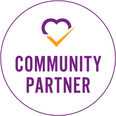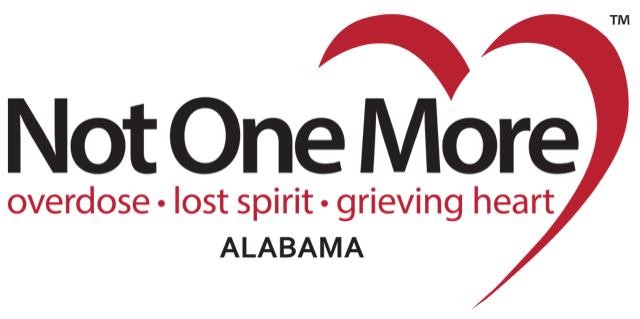What is Not One More Alabama?
In November 2016 a group of family members and professionals began collaborating to address the impact of addiction on families in the state of Alabama. Realizing that incarceration, shame and detachment, and well as Just Say No or DARE campaigns had good intentions, but produced extremely poor results, the group that formed Not One More Alabama decided to step forward and share their personal experiences, knowledge, hope and support with those impacted by the disease of addiction.
The number of deaths from drug overdose skyrocketed in the 1990s after the prescription drug oxycontin came on the market and was aggressively marketed by Purdue Pharmaceuticals as "non-addictive." A second wave of overdose deaths came in 2010 with the rise of heroin use. A third wave began in 2013, according to the CDC, with significant increases in overdose deaths involving synthetic opioids, specifically illicitly manufactured fentanyl.
Opioids are highly addictive substances that work in the nervous system of the body or in specific receptors of the brain to reduce the intensity of pain.
Overdose deaths involving opioids, including prescription opioids, heroin and synthetic opioids like fentanyl have increased more than six times since 1999. In 2020 during the COVID-19 shut-down of gatherings for months on end, overdose deaths skyrocketed to more than 100,000 - an increase of 28.5% from the 78,056 deaths during the same period last year. In 2021, 107,622 lives were lost in the United States due to a drug overdose, according to www.justice.gov/opioidawareness/opioid-facts. This is an average of some 295 people dying per day.
Today, there is no time to allow someone to "hit bottom." We must change the way we approach our loved ones who are in the grips of addiction. Instead of confrontation and shame, we stress kindness and compassion. NOMA is growing an army of professionally trained family coaches who share Community Reinforcement and Family Training (CRAFT) strategies to create an environment that motivates change. CRAFT is an approach that benefits the individual with a substance use disorder AND their families.
Instead of detaching from a loved-one, we encourage families to stay connected in order to help. Helping is NOT enabling. As researcher Johann Hari famously concluded in his popular Ted Talk: The opposite of addiction is not sobriety. The opposite of addiction is connection. Human Connection.
Partner with us as we support individuals and families who have been impacted by the disease of addiction. We will continue to gain and share education about treatment, recovery and support services. Together we can save lives and remove the stigma associated with addiction and mental illness that often accompanies it.
The number of deaths from drug overdose skyrocketed in the 1990s after the prescription drug oxycontin came on the market and was aggressively marketed by Purdue Pharmaceuticals as "non-addictive." A second wave of overdose deaths came in 2010 with the rise of heroin use. A third wave began in 2013, according to the CDC, with significant increases in overdose deaths involving synthetic opioids, specifically illicitly manufactured fentanyl.
Opioids are highly addictive substances that work in the nervous system of the body or in specific receptors of the brain to reduce the intensity of pain.
Overdose deaths involving opioids, including prescription opioids, heroin and synthetic opioids like fentanyl have increased more than six times since 1999. In 2020 during the COVID-19 shut-down of gatherings for months on end, overdose deaths skyrocketed to more than 100,000 - an increase of 28.5% from the 78,056 deaths during the same period last year. In 2021, 107,622 lives were lost in the United States due to a drug overdose, according to www.justice.gov/opioidawareness/opioid-facts. This is an average of some 295 people dying per day.
Today, there is no time to allow someone to "hit bottom." We must change the way we approach our loved ones who are in the grips of addiction. Instead of confrontation and shame, we stress kindness and compassion. NOMA is growing an army of professionally trained family coaches who share Community Reinforcement and Family Training (CRAFT) strategies to create an environment that motivates change. CRAFT is an approach that benefits the individual with a substance use disorder AND their families.
Instead of detaching from a loved-one, we encourage families to stay connected in order to help. Helping is NOT enabling. As researcher Johann Hari famously concluded in his popular Ted Talk: The opposite of addiction is not sobriety. The opposite of addiction is connection. Human Connection.
Partner with us as we support individuals and families who have been impacted by the disease of addiction. We will continue to gain and share education about treatment, recovery and support services. Together we can save lives and remove the stigma associated with addiction and mental illness that often accompanies it.
Email Us at [email protected]
Or leave a message at: 256-384-5055

Not One More Alabama is proud to be a Community Partner with The Partnership to End Addiction , an organization that provides personalized support and resources to families impacted by addiction, while mobilizing policymakers, researchers and health care professionals to more effectively address addiction systemically on a national scale.
Not One More Alabama is a not-for-profit 501(c)(3) organization. Donations may be tax-deductible.
Our federal tax ID number is 61-1807663




